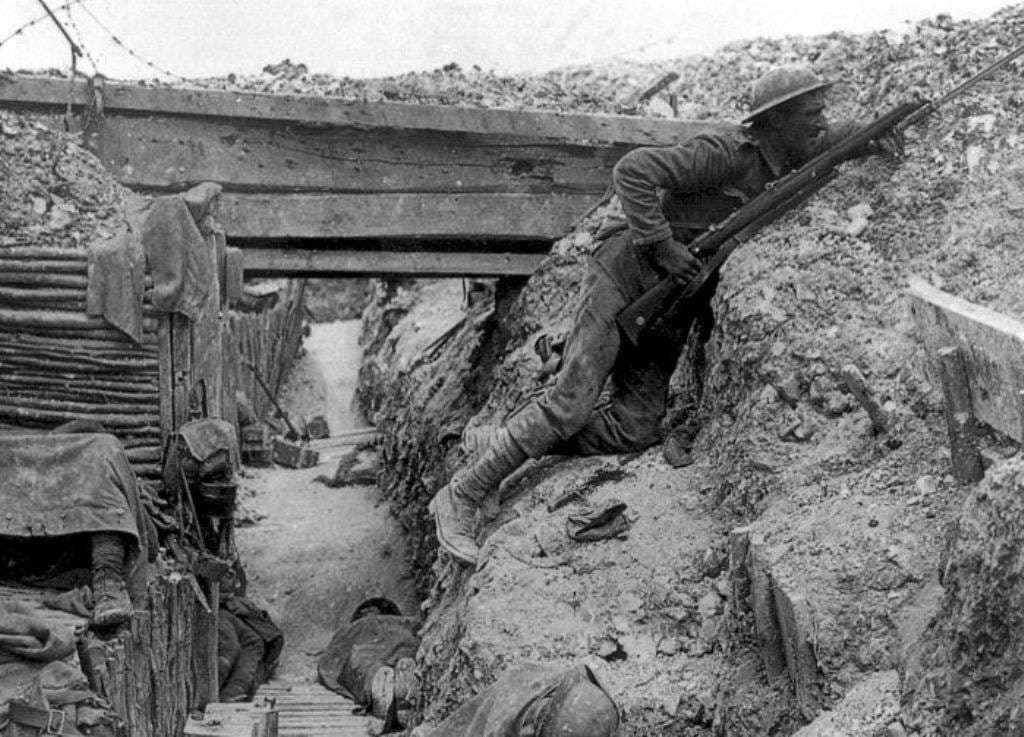Young provincial laborer Desmond Doss (Andrew Garfield) professes Seventh-day Adventism and rejects violence. His faith forbids him from even touching a gun. But in the midst of World War II, Desmond decides he can’t sit on the home front while other young men from his town fight. So he volunteers to enlist in the army, and is promised that he will become a field corpsman who does not need to carry a gun. But the boy’s commanders insist that every soldier must learn to shoot, even if his military job is to save the wounded, not to kill the Japanese. Desmond has a lot to endure until he is sent to Okinawa, where he is given a chance to show what he is worth on the battlefield.
The longer Hollywood has existed, the less it tends to make the main positive heroes into fervent Christians with a Bible at their heart and a prayer on their lips. Hollywood knows that such characters annoy many people in America and around the world, so they try not to lose the audience before they’ve had a chance to taste the movie. But since zealous Christians exist and they want to see movies about themselves, America has developed an almost parallel fundamentalist cinema with its own characters, its own hits, its own favorite plots.
In 2004, Mel Gibson became a hero of Christian cinema. His biblical drama “The Passion of the Christ” was aimed at a fundamentalist audience, and Gibson hooked influential pastors and large church congregations to promote the film. As a result, the picture grossed more than $600 million, making The Passion the most profitable non-English language film (recall that the film was shot in authentic Biblical-era dialects).
Despite this colossal success, Gibson did not develop it at the time. This year, however, he has again released, if not a fundamentalist, then clearly a Christian film, primarily aimed at church audiences.
Of course, “For Reasons of Conscience” is the story of a war hero, not a biblical character or a famous priest. But Desmond Doss’s (a real man who was awarded the highest military decoration in the United States) unbending faith is of tremendous importance to the narrative. At first, the humble but determined young man defends his right to serve his country without picking up a rifle, and no amount of taunting by fellow soldiers and commanders can break him. Though he is overtaken by doubts and temptations, he stands his ground.
When Desmond finds himself on the battlefield, prayer sustains him during a remarkable feat, which we will not describe in detail, so as not to spoil the surprise. Doss does not preach his faith and even prays often to himself, but his actions speak louder than words. And the essence of his exploit is saving lives, not the usual war heroic killing. One may or may not agree with Desmond’s philosophy – incidentally, the film offers a compelling and sensible argument as to why a field corpsman should be able to shoot – but it is impossible to deny the spiritual strength and incredible courage of the guy, humanly and charmingly played by Andrew Garfield, the former Spider-Man.
The first part of the picture is standard for this kind of films, and the jogging to the screams of the sergeant from the training camp, the night beatings, cleaning latrines and other delights of preparing for war are not particularly exciting. Neither are the formulaic pictures from the guy’s personal life (the hero has a cute girl and an alcoholic father). But when Desmond and his company find themselves in Okinawa and start storming an impregnable mountain ridge, viewers understand why “For Reason’s Reason” received high praise in the West.
Remember the famous Normandy landing scene in “Saving Private Ryan,” which is so powerful that it undercuts the entire narrative that follows? Mel Gibson filmed an even more terrible and ruthless war – a real meat grinder in which Americans and Japanese grind each other with bullets, grenades, flamethrowers, bayonets, knives and even their bare hands. They fight over a lifeless mountain, but it is of strategic importance, and that is enough to literally pelt each other with corpses day after day. “War is hell” – there are few pictures that so lucidly and bloodily convey this message to the audience.
It would seem that such battles should burn everything human out of people, turn their souls into smoking hulks like the one that smokes in the head of Doss Senior, who lost his best friends during World War I and has never come to terms with his loss. But Desmond remains human, and that is his greatest, most incredible achievement.



